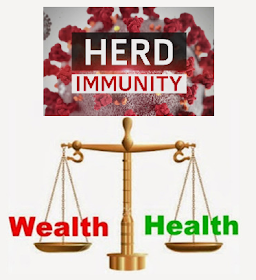Harvard University researchers say an on-again, off-again approach to social distancing could be a more effective strategy to avoid overwhelming hospitals and to build herd immunity against the novel coronavirus — but other experts aren’t so sure.
An April study, conducted at Harvard University’s T.H. Chan School of Public Health, championed intermittent social distancing — measures that are periodically reimposed when cases reach certain levels.
According to the researchers’ modeling, as long as social distancing occurred between 25 percent and 75 percent of the time, the world could both build immunity and keep the healthcare system from overloading. Watch the video on this page.
Social distancing restrictions could be eased under various scenarios, according to the authors—if COVID-19 treatments become available, if hospitals can increase their intensive care bed capacity, if there’s aggressive contact tracing and quarantine, or if a vaccine is developed.
Here is a video explaining how the no lockdown strategy and accelerated "herd immunity" might be working in Sweden but also explains the risks. Sweden prefers to use the term "transmission" for fear that they are perceived as giving up on fighting the disease. Sweden's strategy would mean their death toll will be higher earlier and lower later as herd immunity is achieved. Thus, Sweden would not likely experience a second wave of transmission in the fall and winter months.
It also raises the question of how many people are actually following the stay at home orders?
According to researchers' modelling, if social distancing occurred between 25 and 75 per cent of the time, the world could keep health-care systems from overloading.Do you think that intermittent social distancing would be effective?Read more: https://t.co/kohGB8tayJ— Globalnews.ca (@globalnews) May 4, 2020













